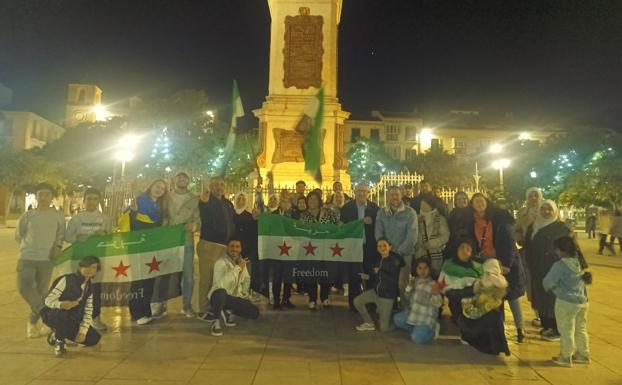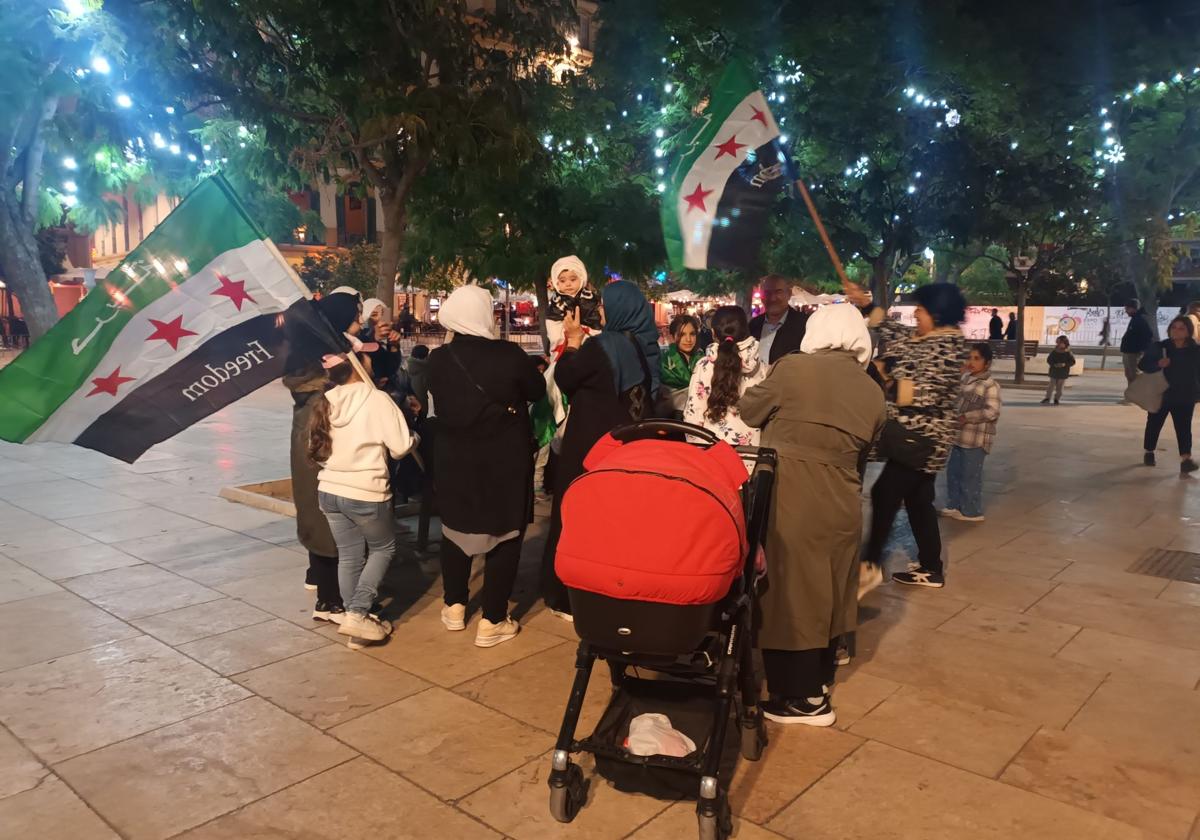Syrian community on the Costa celebrates the fall of former president Bashar al-Assad's regime
Several hundred live in Malaga, many in the city, but also in Marbella and Fuengirola. With this outcome, is it possible that they will feel safe to return to Syria?
Lama Zabad explains that she has not slept for 48 hours since her family and friends in Syria told her that the fall of Bashar al-Assad's regime was imminent. "It's all been very fast. We still can't imagine a Syria without al-Assad, so my family there, in Damascus, is between fear, joy and disbelief," explains Lama, who has been permanently living in Malaga for fourteen years, although she had been living between Syria and Spain for another six years, since her brother, Wassim Zabad, came to Malaga university (UMA) to complete his studies in international law. "These past 48 hours have been a succession of calls, staying connected on Facebook with my family and friends. They still can’t believe it; they remain fearful of the secret police, thinking they could still be arrested. But no, in reality, they can now walk freely in the streets," continues Lama, who also admits to receiving calls and messages from everywhere: the downfall of the Syrian dictator gives hope to other people that they too can free themselves from authoritarian regimes.
Lama and her brother set up the Palmira association, a non-profit organisation that works throughout Andalucía and whose aim is to provide humanitarian aid to those affected by the war in Syria, as well as to promote the integration of refugees in host countries. Precisely, it was born with the extensive arrival of refugees to Europe in 2015, despite the fact that the civil war had broken out in 2011, coinciding with the Arab Spring, the movement that sought the democratisation of the area, which were met with severe repression by the Syrian regime. On Monday afternoon, a couple of dozen Syrian refugees in Malaga gathered to celebrate the fall of the al-Assad regime in one of the most emblematic places in the capital, in the place where the Spanish liberal tradition is remembered, the Plaza de la Merced. Men and women of all ages were waving flags and chanting under the obelisk. They were happy. Excited.
"We have received the news with great joy: the Syrian people have suffered for more than 50 years under a dictatorship that ruled Syria with an iron fist, a savage dictatorship. The Assad family - first the father, who staged a coup d'état in 1970, and then the deposed leader, after the death of his elder brother in an accident, who was predestined to continue the patriarch's work - have considered Syria as if it were their own backyard; they have done what they wanted, they have stolen the country, there has been corruption at all levels and they have taken many political prisoners," explains Wassim Zabad, who adds that now they have just released people who had been in prison for more than forty years: "They entered when they were 16 years old and now they are 60," he says. But there are still prisoners to be released from secret prisons: it is suspected that there may be some underground, which is why there are rescue teams and dogs employed for the purpose.

"We don't know what will happen in the future, but any government that comes to Syria will be less cruel than the al-Assad regime, which was the height of cruelty and savagery," says Wassim, who also rules out the possibility of an Islamist regime: "We Syrians are moderates, we are not extremists. Although we will have to see what happens, because now all the factions were united against al-Assad, but we will see if there is not another conflict for power. What we do hope is that those who come to power will respect the diversity of the country, because there are not only Muslims, there are also Christians, Druze... it is a mosaic of ethnicities and religions. We hope that Syria's religious and ethnic plurality will be respected," he adds.
They are reassured that the UN is watching and that foreign correspondents have been able to cross the borders and are witnessing what is happening.
Several hundred Syrians live in Malaga, many in the capital, but also in Marbella and Fuengirola, for example. With this outcome, is it possible that they will return to their country of origin? Lama Zabad explains that it is still too early to say: "It's too early to say, because the regime fell yesterday; people are still very surprised, because this has been like a dream for us, people don't believe it, we are still wondering if it's for real." Moreover, she says that there are many different situations among the refugees: there are some who have been in Malaga for a year, but there are others who have been here for almost ten years and have already made a life here.
But her brother believes there is a strong desire to return: "Refugees who were in Turkey have already returned to Syria. The border is now crowded with people. The same is happening from Lebanon or Jordan. Even from the refugee camps in northern Syria, there are people trying to return to their homes: despite them being destroyed, they would rather go back to those ruins than remain in a tent."
However, they feel very supported in Spain: Lama and Wassim recall that this country also had a dictatorship, and there came a day when freedom and democracy were established. And that is what they want for Syria.

